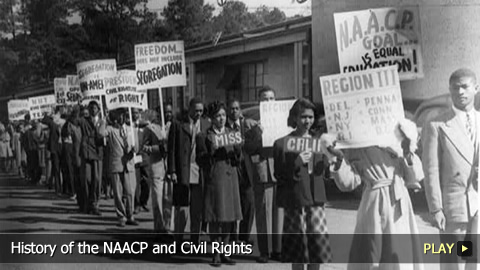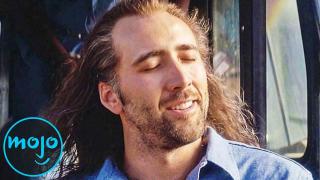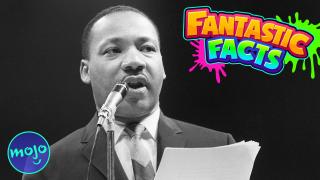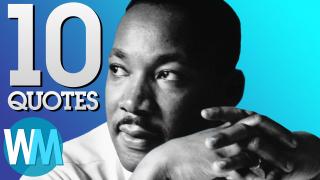Martin Luther King Jr: Life and Death
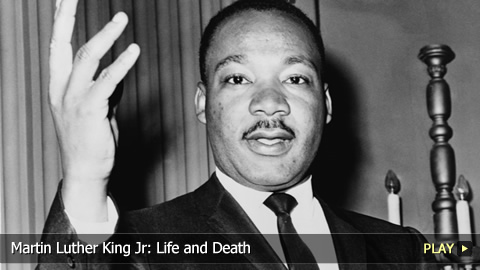
NAACP and the Montgomery Bus Boycott
History of the NAACP and Civil Rights
The next year, he became pastor of the Dexter Avenue Baptist Church in Montgomery, Alabama. Already a prominent member of the National Association for the Advancement of Colored People, or NAACP, by December 1955 he took on a more high-profile role in the organization. He led the charge in the Montgomery Bus Boycott, after African-American bus rider Rosa Parks was arrested for refusing to give up her seat to a white man. The boycott lasted well over a year, and during that time King was personally targeted by firebombs to his home and even an arrest. Ultimately, the battle was won, and King became known as a great Black leader.
Southern Christian Leadership Conference
Top 10 Worst Southern Accents in Movies
By 1957, King helped found the Southern Christian Leadership Conference. This group used peaceful protest methods such as boycotts, sit-ins and marches to fight for civil rights. Unfortunately, these demonstrations did not always remain peaceful, as standoffs with police sometimes turned violent. King was also adept at utilizing the media to bring the issues into the forefront of public consciousness.
The March on Washington and the 1964 Civil Rights Act
Martin Luther King Jr. Day! - Fantastic Facts
In the early 1960s, much of King’s work took place in southern states like Georgia, Alabama and Florida. He was also instrumental in the March on Washington, which took place on August 28th, 1963. Despite a great deal of controversy surrounding the event, the event drew record numbers to the city’s National Mall. On the steps of the Lincoln Memorial, King made his most famous speech , pleading for tolerance and equality. This event and King’s words are credited with assisting in the passage of 1964’s Civil Rights Act.
Bloody Sunday
Bacon Drink Recipes: Bloody Caesar, Bacon Bourbon, Hawaiian Sling
The next year, a failed march between Selma and Montgomery, Alabama erupted in violence. The day was nicknamed Bloody Sunday, and is considered a decisive moment in the history of civil rights. Though he was not involved, King organized another march on March 25th, and he delivered another important speech on the steps of the state capitol.
Moving North
What If Earth Suddenly Stopped Moving? | Unveiled
In 1966, King and his counterparts tried to steer the movement into the north of the country, starting with Chicago. He moved to the slums of the city to show support for those in poverty, and continued to hold marches despite a terrible public reaction.
Against the Vietnam War
Top 10 Most Powerful Martin Luther King Jr. Quotes
By 1967, King had shifted his focus by vocally opposing the Vietnam War. King suggested funds spent on the war would be better used on social programs and on balancing economic inequalities. This evolution in his beliefs lost him support among whites, including President Johnson.
The "Poor People's Campaign"
Top 10 Real Life People Who Could Be Supervillains
1968 saw King help coordinate the “Poor People’s Campaign,” to further his agenda against financial disparity. This drive was not supported by some prominent members of the Civil Rights Movement, as they feared its goals were too much to overcome. To further this campaign, King traveled to Memphis, Tennessee to show support for striking black public workers. There, on April 3rd, he gave the last speech of his career: his prophetic “I’ve Been to the Mountaintop” address.
Assassination
10 Assassination Conspiracies That Turned out to Be True
The next night, on April 4th, 1968, King was standing on the balcony of his motel when he was shot and killed. As the country mourned, violent riots erupted across the nation. James Earl Ray was later convicted of the murder, though conspiracy theories remain as to who was behind the assassination.
Legacy
Top 10 Scariest Kaiju On Monarch Legacy of Monsters
King has been recognized for his work a number of times, including a Nobel Peace Prize in 1964. Today, King’s contributions to the Civil Rights Movement are immeasurable, and his legacy lives on as one of equality and tolerance.


